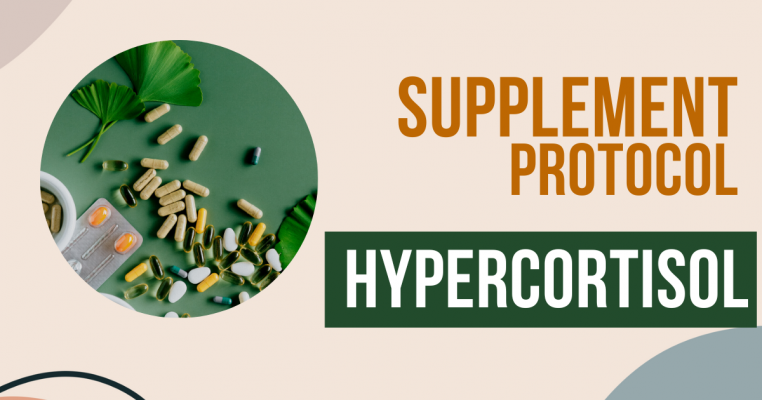Weight Loss from a Functional Medicine Lens
Weight loss can be tricky – especially when you feel you have done everything you can!
There are many clients that come to me with the goal of losing a significant amount of weight. But it’s more than calories in, calories out.
Weight is Protective
You’ve probably heard of “fight or flight”? The body under constant stress can be powerful, under chronic stress, the body tries to adapt to stay alive. The body views excess weight as an assurance against an uncertain future. The body will naturally increase adipose (fat) tissue if it feels survival is being threatened.
Weight loss will be natural (and sustainable) when sources of stress and inflammation are addressed. Forcing weight loss on its own without addressing root causes will not only be temporary but will likely cause new body weight reset points that are progressively higher.
Weight Loss is Often Last
Weight loss is often the last perceived benefit of addressing the root causes of disease. This means that it requires a lot of commitment, persistence and staying on course.
Weight and Toxins
Clients with significant excess weight will also have significant toxicity. Many toxins are stored in fat, and can in fact be a root cause as to why they are having issues with either weight gain or trouble losing weight. Therefore detox pathways must be supported before there is significant weight loss. I will share more about the important steps for detoxification down below.
Causes of Weight Gain
The most common reasons people struggle with losing weight are:
- hormone-mediated (insulin resistance, hypothyroidism, estrogen dominance)
- food
- toxins
- chronic stress
Insulin Resistance
Both a high glycemic diet and chronic stress increases the glucose load on the body. Over time, increases in blood sugar can lead to insulin resistance. In this case, cells are suffering from low energy, organs and the cardiovascular system are suffering from too much sugar, and the body is storing more and more fat.
Tests that we run which can illuminate this root cause including fasting glucose and HbA1c. Fasting insulin can show an earlier trend toward weight gain. If it is in the upper half of “normal”, adjustments in lifestyle can be made earlier rather than waiting for fasting glucose and HbA1c to increase.
Strategies to Address Insulin Resistance
Eliminate sugars and sweeteners. After a couple of initial, transitional weeks, this should also include elimination of all natural substitutes e.g. stevia, erythritol in order to allow taste buds to adapt over time to stop expecting most foods to be artificially sweetened. Try starchy vegetables (e.g., sweet potato) or whole fruit to satisfy our natural desire for sweet flavors. Work with your health coach to come up with a list of alternatives that you love and are available in your area.
Eliminate All Grains. For at least a while, eliminate all foods made with ANY grain flour including those popular “gluten free” products. In many people, especially those with insulin resistance, they cause the same types of blood sugar spikes (and insulin surges) as sugars. Stone-ground, whole wheat flour spikes blood sugar in many worse than table sugar.
Eat a Breakfast. After having a full 8 oz glass of warm water and lemon in the morning, eat a breakfast that includes protein and healthy fat every day. Our blood sugar stability and cravings throughout the rest of the day are highly influenced by what we eat for our first meal of the day. If you are considered obese, have 15 grams of protein in your first meal of the day. Protein intake increases satiety and promotes the secretion of a hormone in the body called glucagon which promotes fat-burning.
Notice that the average American eats a small (or skips entirely) breakfast, a medium-sized lunch, and then arrives home ravenous to consume a rather large dinner. This is not conducive to health!
Front-Load Your Day’s Food. I don’t believe in counting or tracking anything that can be counted (e.g. calories, fat grams, sugar grams) because I think it makes people obsessive about their food. Instead, I have had great success with this simple recommendation – consume about 80% of your day’s food by mid-afternoon and eat nothing 3+ hours before bedtime.
For most clients, this will include a medium-sized breakfast, a large hearty lunch around 1pm, and a mid-morning and/or afternoon snack.
As you begin to follow this routine, you will find that you become less and less hungry for dinner, and your evening meal can become quite small. This allows the body to burn body fat for fuel throughout the night.
The average American consumes nearly 50% of the day’s calories after 5pm. As you might imagine, this is a metabolic disaster area for those looking to lose weight. In general, the food we don’t burn for fuel for energy within about three hours of eating is stored as fat (regardless of the type of food!). After dinner, most of us are not going to head out for a rousing game of tennis to burn a lot of calories – but rather we are likely to hit the couch and wind down.
Overnight fasting of 12-14+ hours can encourage fat loss if you are generally in good health and sleeping well.
Hypothyroidism
A sluggish thyroid can cause sluggish anything. Fatigue can result in moving less and sluggish metabolism can cause weight gain.
Labs that we can explore together include a full thyroid panel. This means:
- TSH
- Free T4
- Free T3
- Reverse T3
- Thyroid antibodies (TPO and TG)
In the labs, we are looking for various types of hypothyroid function. Sub-clinical hypothyroidism can still have *dramatic* effects! We also may uncover autoimmune (Hashimoto’s), nutrient or stress impaired thyroid function from:
- low T4 from insufficient iodine)
- high conversion of T4 to Reverse T3; and/or
- poor conversion of T4 to T3
Hormone Imbalance
Hormone imbalance includes estrogen dominance or testosterone deficiency – an issue in both men and women.
Testosterone
Testosterone is important for many functions including libido and joint health, and it is well-known to be important for building muscle and decreasing body fat. Testosterone can be low due to stress, excessive exposure to estrogen or excessive alcohol intake, for example.
Deficiency can lead to low motivation, irritability, insulin resistance and weight gain. Much of our androgens are produced in the adrenal gland, so if the adrenal gland is busy pouring out stress hormones, testosterone production can suffer, but in addition, cortisol blocks testosterone receptors. In addition, with excess body fat, adipocytes may lead to excess estrogen and low testosterone because adipose tissue is endocrine tissue and can convert androstenedione and testosterone into strong estrogens via aromatization.
Estrogen Dominance
Estrogen dominance is a common dynamic that leads to symptoms such as PMS (usually with cramps), heavy, lengthy, clotting periods, and stubborn weight gain. Most often, estrogen dominance is caused by blocks in estrogen metabolism or clearance or increased estrogenic load from endocrine disrupting chemicals (pesticides, herbicides, parabens, phthalates etc.).
A good opportunity in this case would be to clean up personal care and cleaning products and eat as much as possible 100% organic.
I also recommend testing, instead of guessing when it comes to hormones. Ask me about the DUTCH test!
Stress!
Chronic stress unpins all of the above dynamics and, as such, is often a major driver of stubborn, excess weight. Cortisol is a catabolic hormone which is released under stressful conditions, breaking down muscle to generate blood sugar in the process of gluconeogenesis. It does this, while simultaneously increasing insulin resistance. High cortisol also reduces thyroid action via increasing T4 conversion to Reverse T3. Many people trying to lose weight inadvertently increase their cortisol (and thus their Reverse T3) with excessive exercise or insufficient calories for example. Of note, sustained low cortisol due to prolonged stress or burnout can also reduce thyroid action via reducing cellular uptake of thyroid hormone. Sources of stress that may lead to trouble losing weight include:
- Emotional stress
- Ongoing physical trauma
- Ongoing chronic pain
- Excessive exercise
- Chronic dieting/insufficient calories
- Lack of rest and/or inadequate quality sleep
- Too many stimulants
Allergen exposure – environmental, food…even food sensitivities, see below
Toxicity e.g. heavy metals, mold, chemicals
Food Sensitivities
Food sensitivities can cause symptoms of all kinds, including general inflammation and weight gain. Common culprits are gluten and dairy (must be eliminated completely for at least four weeks – and watch out for hidden gluten and dairy!)
A further elimination diet may be tried from there, and if appropriate, we may want to consider food sensitivity testing. Please note that none of the food sensitivity tests are comprehensive – total IgG with complement (not IgG4) or a combo IgG/IgA are best to help eliminate false positives.
Toxins
Many toxins are stored in adipose tissue and can be a common reason for weight loss resistance. Common toxins we are exposed to are endocrine disrupting chemicals (personal care products, cleaning products and food packaging), pesticides, herbicides, fungicides, VOCs, heavy metals and mold. We not only need to reduce exposure, we often need to remove stored residual toxins from the body as well.
For example, mold is a toxin that can lead to weight gain or trouble losing weight. Getting it out of the body will only help marginally if one is constantly being exposed. Full healing can’t take place until you are removed from the toxic/allergenic environment sustainably.
Regardless if it’s a driving root cause or not, it’s important to be mindful of the fact that as we lose weight, we free up toxins from adipose tissue and put them back in circulation. This dynamic is seen with weight loss via diet and via surgery. This can cause an increase in physiologic stress (and cortisol), which will in turn, slow weight loss.
Key Pointers
So, before any intensive weight loss efforts, there are a few important things to ensure before proceeding:
- Ensure good hydration (in order to be able to dilute and eliminate toxins via the urine)
- Ensure consistently good bowel movements (in order to eliminate toxins via the feces)
- Ensure good bile flow – bile helps us excrete fat soluble toxins
- Ensure good sleep as cerebrospinal fluid (CSF) clears metabolic waste products from the brain during sleep
- Toxin avoidance – cut out pesticides, herbicides, etc. by eating 100% organic during weight loss efforts. Identify other sources of toxins in personal care products and throughout the home. The less toxins coming in, the more toxins the body can focus on getting out.
- Ensure Phase 1 and 2 Detox pathway are being supported
- Organic green tea can help support detoxification but also can support metabolism and help calm stress hormones due to the L-theanine.
- Eat fresh cilantro and parsley – a lot of it. These are both great herbs to support detox.
- Eat lots of organic vegetables, especially things like alliums (garlic) and cruciferous vegetables, which greatly aid detoxification processes in the body.
- Utilize a methylated B complex such as Thorne Basic B
- Talk with your functional medicine practictioner about binders. Binders are used to avoid re-toxification as the toxins are released back into circulation during weight loss. Binders can be natural, such as a large increase in fibers and vegetables, or they can be supplements.
Finally, it’s also important to take breaks from intense weight loss efforts to work on healing the gut intermittently. All the toxins released can damage the GI tract lining, so to avoid causing other downstream issues, it’s important to take some time to heal the gut after each approximately 20-25 pounds lost.
PS. I have a few more tricks up my sleeve when it comes to stress reduction, types of exercise and also probiotics that help the gut. We also want to assure proper digestion and assimiliation of nutrients. Reach out if I can help you!

A Step in the Right Direction
Your return to health starts by signing up for an insightful Health Advocacy Session. Learn more about our programs today.
The Wellness Journal







